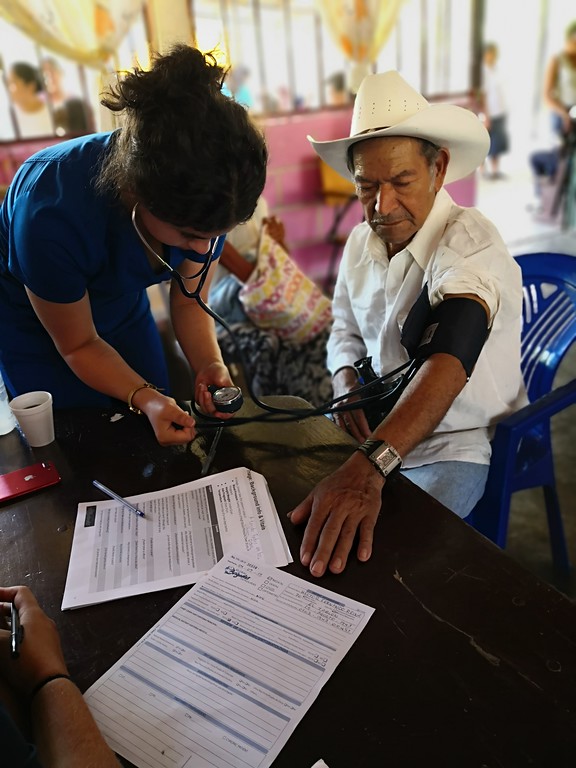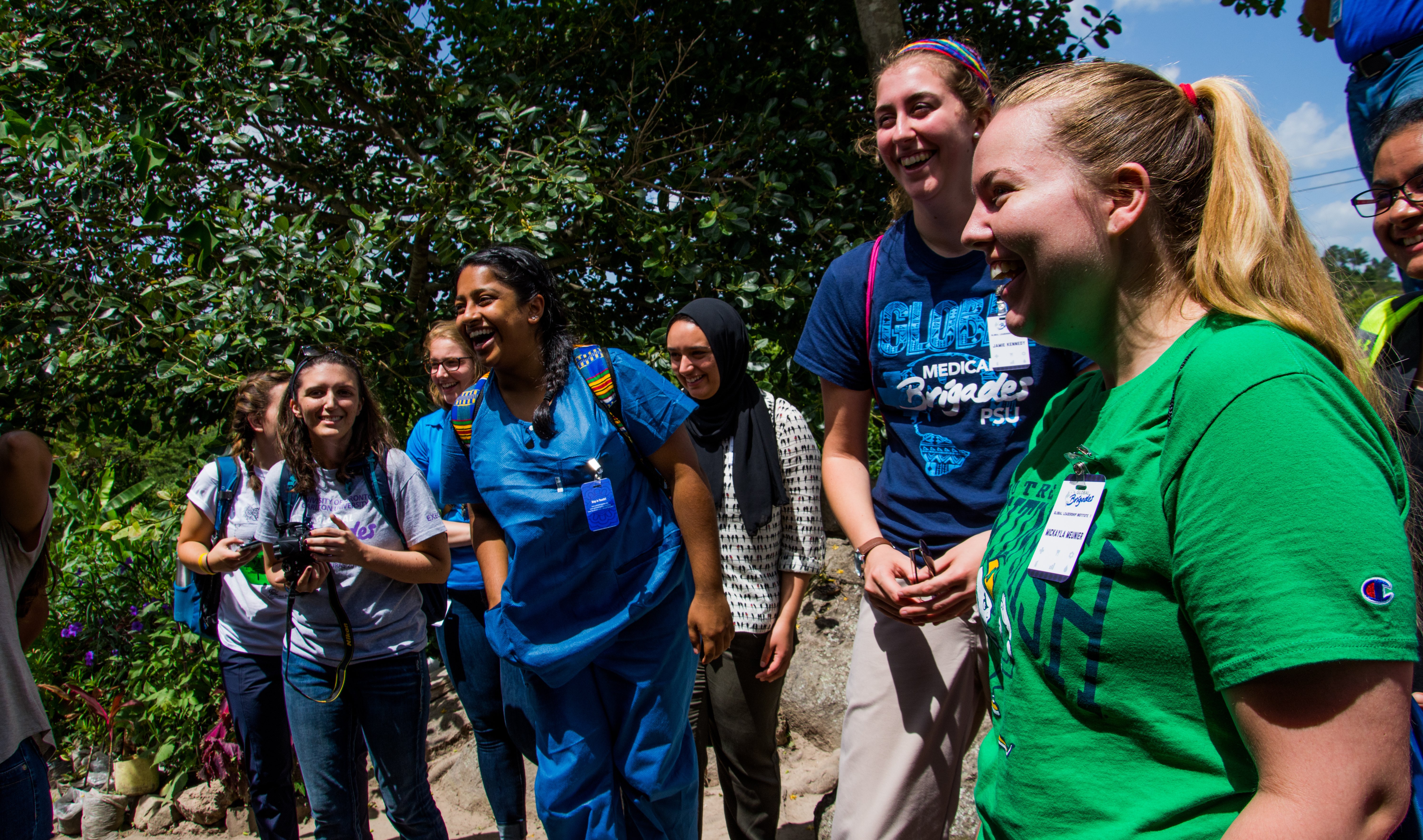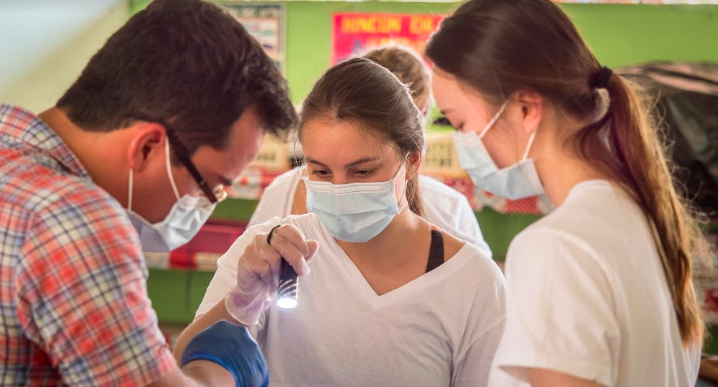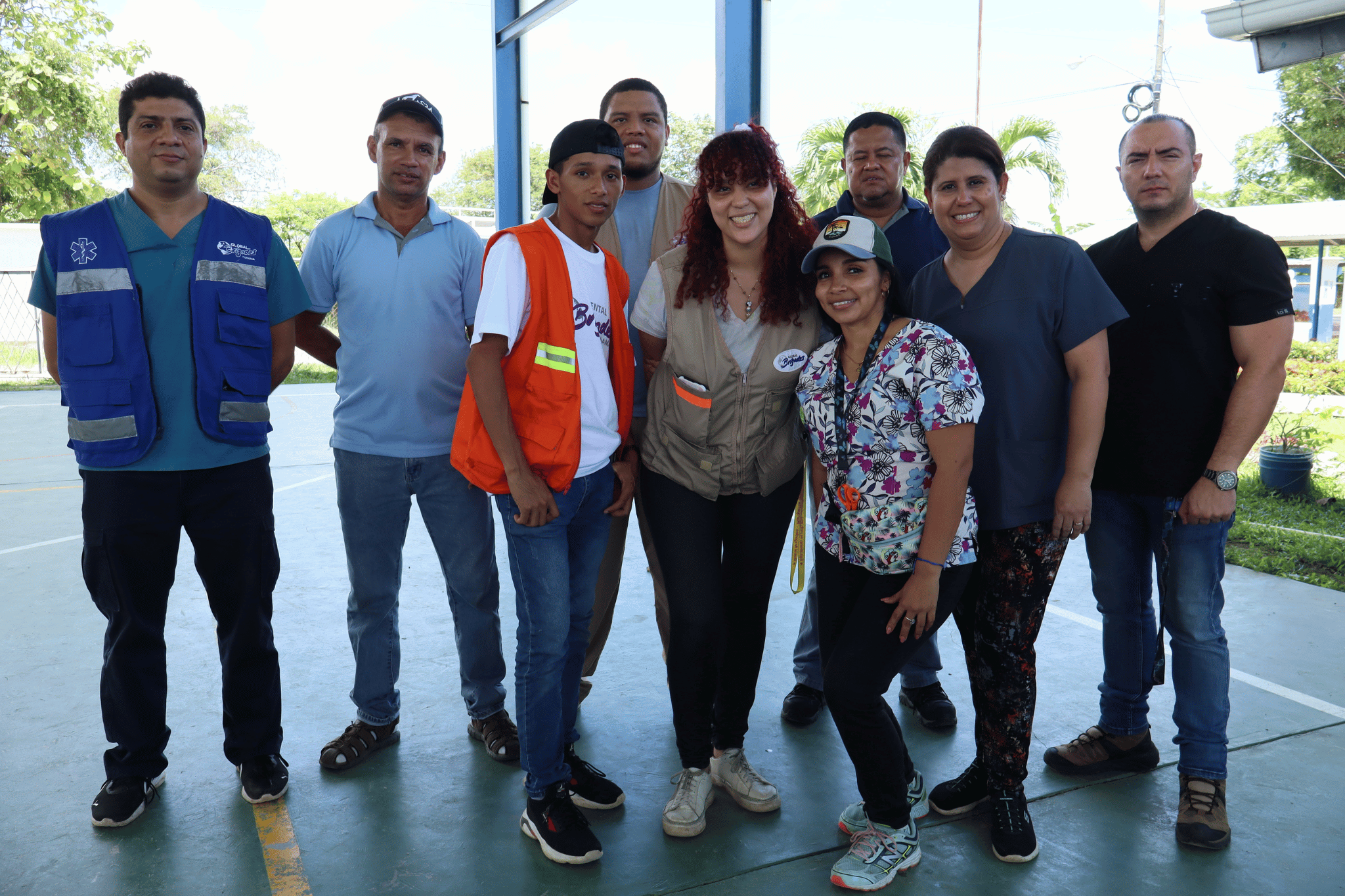Written By Tess Niehoff, E100 Project Manager
When you have lived in Honduras for two years, you cannot help but feel that healthcare becomes personal. It was a Saturday night, I was thankful for the opportunity to slow down after a busy month, my boyfriend Tony and I decided to have a co-working session. Eventually, getting frustrated with my masters degree homework, I resorted to winding down with a TED talk. The TED talk was, “On a Scale of 1-10, How Crazy are You?” which dives into the inadequacies of the US medical system in dealing with mental health and toxic prescriptions.
Seeing my reactions, Tony asked for a synopsis in Spanish. Eventually, the translation turned into a discussion about mental health and suicide in Honduras which lead to the following story:
Tony grew up in a rural municipality city about an hour north of Tegucigalpa, Talanga. Though not quite a city and not quite the countryside, Talanga offers some basic services as the cross-roads for the rural link between Tegucigalpa to Northern and Eastern Honduras. A hospital is not one of these services, however; instead there is a lone Red Cross station with one ambulance for the larger municipality of Talanga.
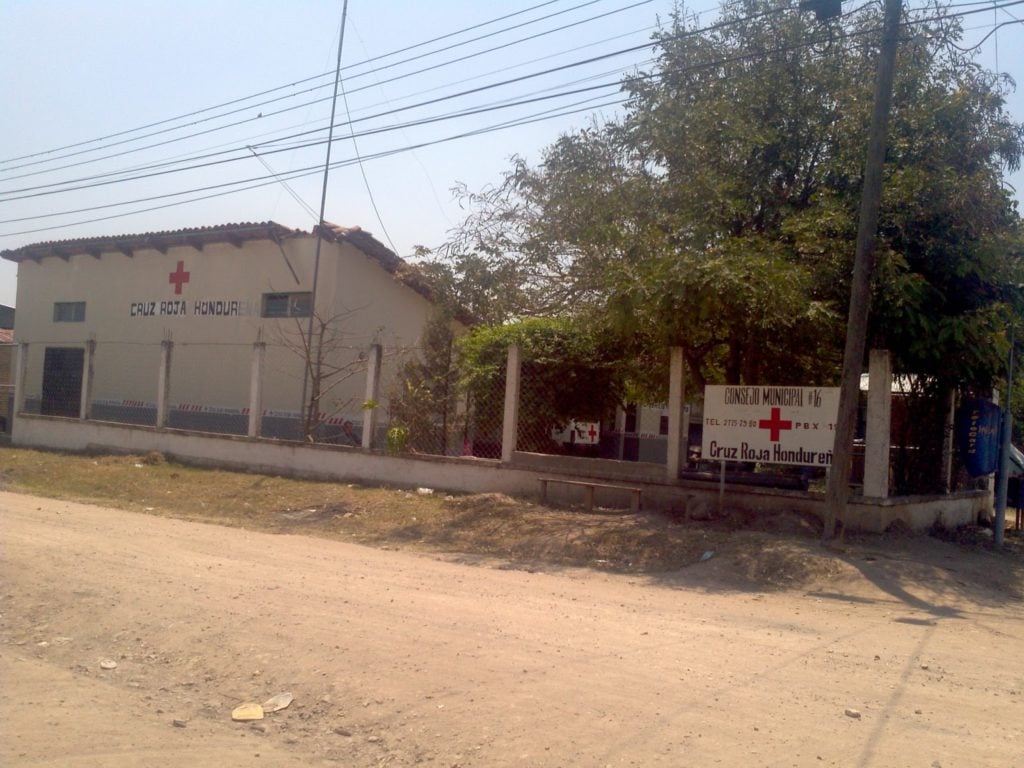
The Red Cross of Talanga, Honduras. Source: Taller de Comunicación Educativa.
As a child, Tony began actively volunteering with Scouts, and once he came of age, he began to volunteer as an emergency helper with the Red Cross. One night, as a senior volunteer, Tony was called in to help with a patient who had been from one of the local rural communities. It was a suicide attempt, in which a 19-year-old girl ingested 3 tablets of bean insecticide. The group of young volunteers did their best to comfort this girl as she died.
“WHAT?” I said. Tony started repeating the story again. I cut him off, “No, no, I understand the Spanish, but why did they just let her die? Why didn’t they pump her stomach? Why didn’t they call 911?” I could not accept that “nothing” had been done.
“You are not understanding this,” Tony said patiently. The young woman had already been in the ambulance for an hour, and she would have to spend another hour to arrive to Tegucigalpa to a hospital. If she survived long enough to arrive in Tegucigalpa, her family would have to buy the tubes, medicine, blood, and anything else needed to cover her medical stay. At the time of the incident, it was already night, and the family was not familiar with Tegucigalpa. This would have opened them to paying price premiums that they could not afford.
Now, as I grew up in Baltimore, the idea of not being able to access a hospital is unbearable to me. With over 15 hospitals in the Baltimore metropolitan area, I could write an entire paragraph about the emergency rooms, life saving trauma centers, and award winning doctors and nurses that all reside in my hometown.
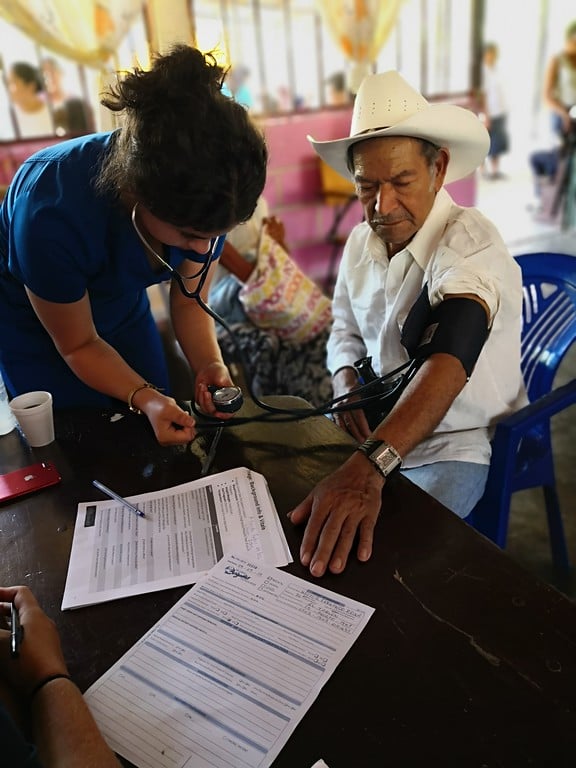
A volunteer from the University of Washington helps measure the blood pressure of a community member in El Tablon, Honduras.
My gut reaction, in comparing Talanga to Baltimore, was not exactly fair. However, in comparing health statistics of Honduras, the numbers paint a dreary picture. The World Health Organization cites that Honduras has seven hospital beds per 10,000 people while the US has 29, UK has 28, and Germany has 83. For physician density, per every 10,000 people, the US has 26 doctors, UK has 28 doctors, and Germany has 42 doctors per while Honduras only has three medical doctors per 10,000 people.
Rural healthcare is a theme that challenges many countries. If you have been on brigade in Honduras, Nicaragua, Panama, or Ghana, you have probably witnessed many of these challenges. The lack of staffing, the lack of facilities and medications, and cultural stigmas against illness are all common issues. As Georgetown University’s Health Policy Institute notes, even in the United States:
“The rural population is more likely to engage in risky health-related behaviors and to experience higher rates of chronic conditions and activity limitations. Rural residents are also more likely to be uninsured for longer periods of time, and are less likely than urban residents to receive some types of health care, including tests for various chronic conditions. Limited access to health care in rural areas is generally associated with the fact that there are fewer providers.”
The problem of providing healthcare services to rural populations is not an easy puzzle to solve.
Would the young woman survive long enough to receive medical treatment in Tegucigalpa? Probably not. Giving the young woman a humane and comforted death was perhaps the best option that Tony and the other volunteers had at the time.
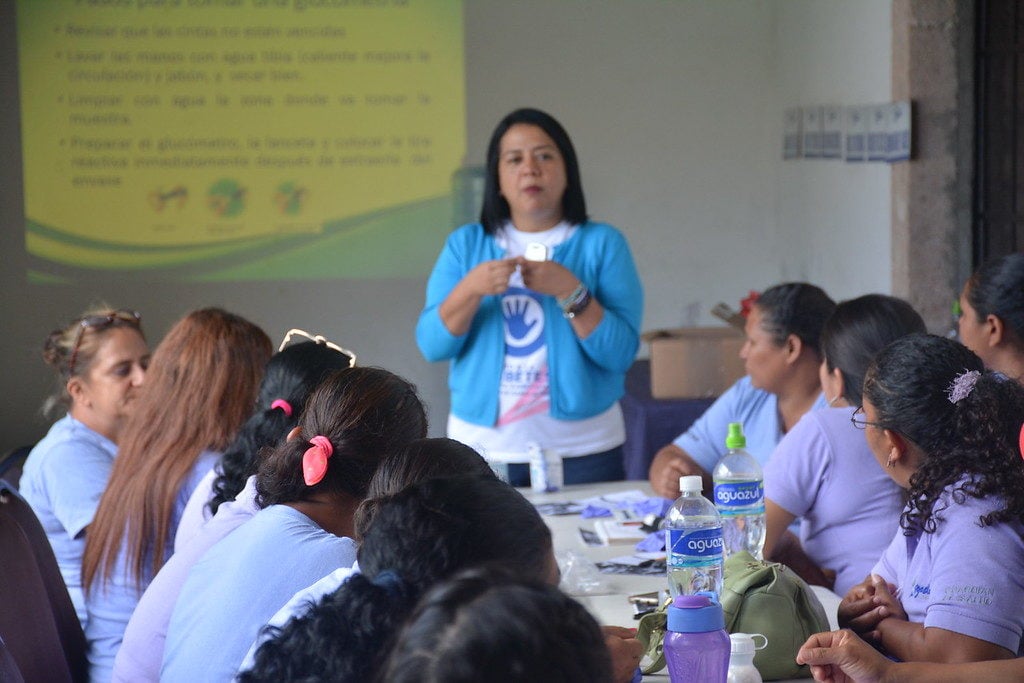
Community Health Works receive glucometer training during CHW Conferences. CHWs also receive training on first aid, identifying mental health illnesses and appropriate ways to provide help and support, and other health related topics that they may find in their communities.
Though Global Brigades seeks to help empower local medical services such as Community Health Workers, local physicians and nurses, and local healthcare partners, in acute scenarios such as a suicide, it is hard to rely on anything but the local health infrastructure. However, it does not prevent the question of what if? Though the young lady did not live in a community where Global Brigades actively hosts Medical Brigades, Global Brigades does run clinics in eight communities throughout the municipality of Talanga. What if she had gone to a clinic and was identified for the Patient Referral Program? What if she had been consulted by a Community Health Worker who had been trained in regard to mental health?
Sometimes it is hard to identify the human impact of going on a Global Medical Brigade. Though Global Brigades can count the amount of patients and consultations, it is sometimes hard to see the impact that a clinic consultation may have on someone’s life. Putting doctors, nurses, and medications directly in the rural communities in which Global Brigades works is a solid contribution in closing the gap in rural healthcare disparities. Training and follow-up of Community Health Workers and Community Health Nurses is one of the ways Global Brigades tries to make this effort more sustainable.
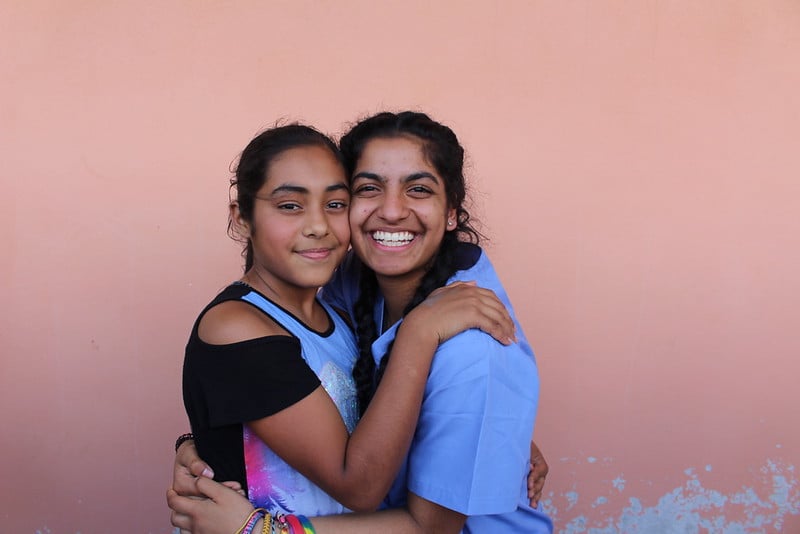
A volunteer from Boston University sharing a hug and a smile with a community member from Manzanragua, Guinope, Honduras.
Though a Medical Brigade cannot solve everything, it is the beginning of a solution to a much larger problem. It is the start of the “something” that could have been done for the 19-year-old patient. The impact that volunteer may have when they share a smile or laugh with a community member, is a number that Global Brigades will never be able to record. The alternate reality of patients admitted to the Patient Referral Program or attended by a Community Health Worker, will forever be unknown. Help close the gap of rural health services in Honduras, Nicaragua, Panama, Ghana, and Greece and volunteer on a Global Medical Brigade!
Call the US National Suicide Prevention Lifeline at 1-800-273-8255 or message the US Crisis Text Line at 741 741.

